Search Images
Browse Content (p. 998)
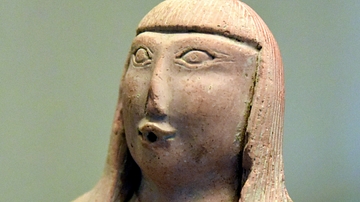
Image
Khotan Terracotta Woman with Long Hair
The oasis state of Khotan with its capital at Yotkan, south of Taklamakan desert, was a prosperous and powerful kingdom. Excavations have yielded many terracotta figures and ceramics of a Hellenistic style adopted from Iran. There are virtually...
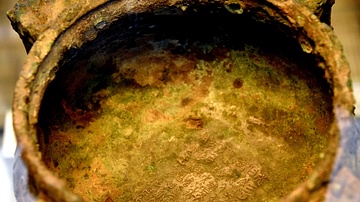
Image
Inscription of the Xing Hou Gui Ritual Vessel
The bronze and its inscription were cast for the Duke of Xing, a descendant of a famous historical figure, the Duke of Zhou. The long inscription inside dedicates the vessel to the Duke of Zhou. It records the gift of three groups of men...
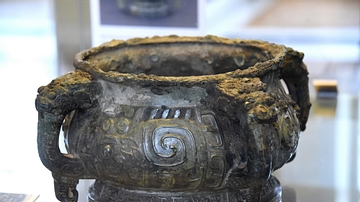
Image
Western Zhou Ritual Vessel
The bronze and its inscription were cast for the Duke of Xing, a descendant of a famous historical figure, the Duke of Zhou. The long inscription inside dedicates the vessel to the Duke of Zhou. It records the gift of three groups of men...
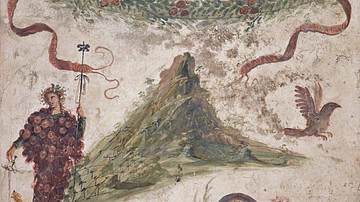
Image
Bacchus & Mount Vesuvius Fresco
Wall painting depicting Bacchus wearing a bunch of grapes with a panther at his feet and most probably Mount Vesuvius. The serpent is Agathodaemon, the "good spirit" of vineyards and grain fields. From the Lararium of the House of the Centenary...
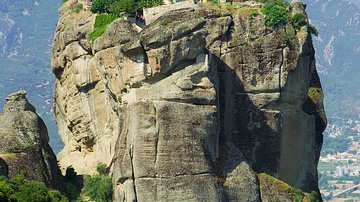
Image
Agios Triadas Monastery, Meteora
The Agios Triadas monastery at Meteora, Thessaly, Greece. Most of the monasteries at Meteora were founded in the 14th century CE.
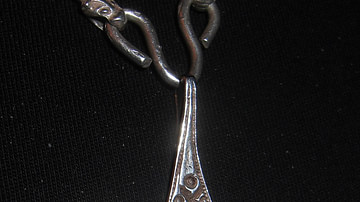
Image
Thor's Hammer Amulet
Amulet in the shape of Thor's hammer, Mjollnir. It is a commercial copy of an archaeological find dating to the Viking Age (c. 790-1100 CE) excavated at Rømersdal, Bornholm, Denmark. In the Viking Age, talismans such as Odin’s head, Thor’s...
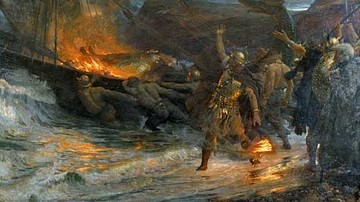
Image
The Funeral of a Viking
Painting by Frank Dicksee (1853-1928 CE) titled "The Funeral of a Viking", showing a Viking being cremated on a ship pushed out to sea. The painting resides at the Manchester Art Gallery in the UK. Historically, although burial became...
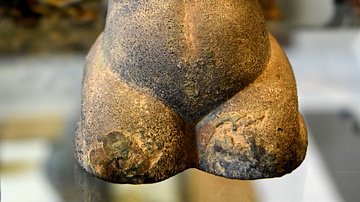
Image
Han Bronze Figure of a Kneeling Man
Though similar to small castings found in the provinces of Southeast China, including Guanxi, such figures have been found in royal tombs in the North and may represent tribute bearers. Han Dynasty, 206 BCE to 200 CE. From modern-day China...
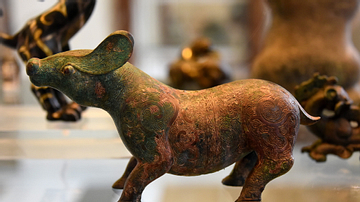
Image
Zhou Bronze Tapir-Like Animal
This was probably used to support a vessel. The surface of the animal is entirely covered with incised spiraling decoration. Made in Houma. Eastern Zhou period, 6th to 5th century BCE. From Modern-day China. (The British Museum, London).
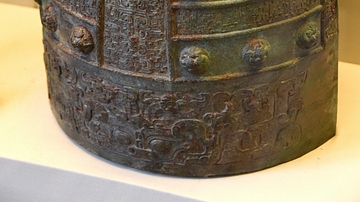
Image
Chinese Bronze Bo Bell
This is one of a set of Bo, of which a number still survives, made at the Jin State foundry at Houma. The decoration on the bell was made by using pattern blocks, so that exactly the same motifs, made with the same set of blocks, appear on...